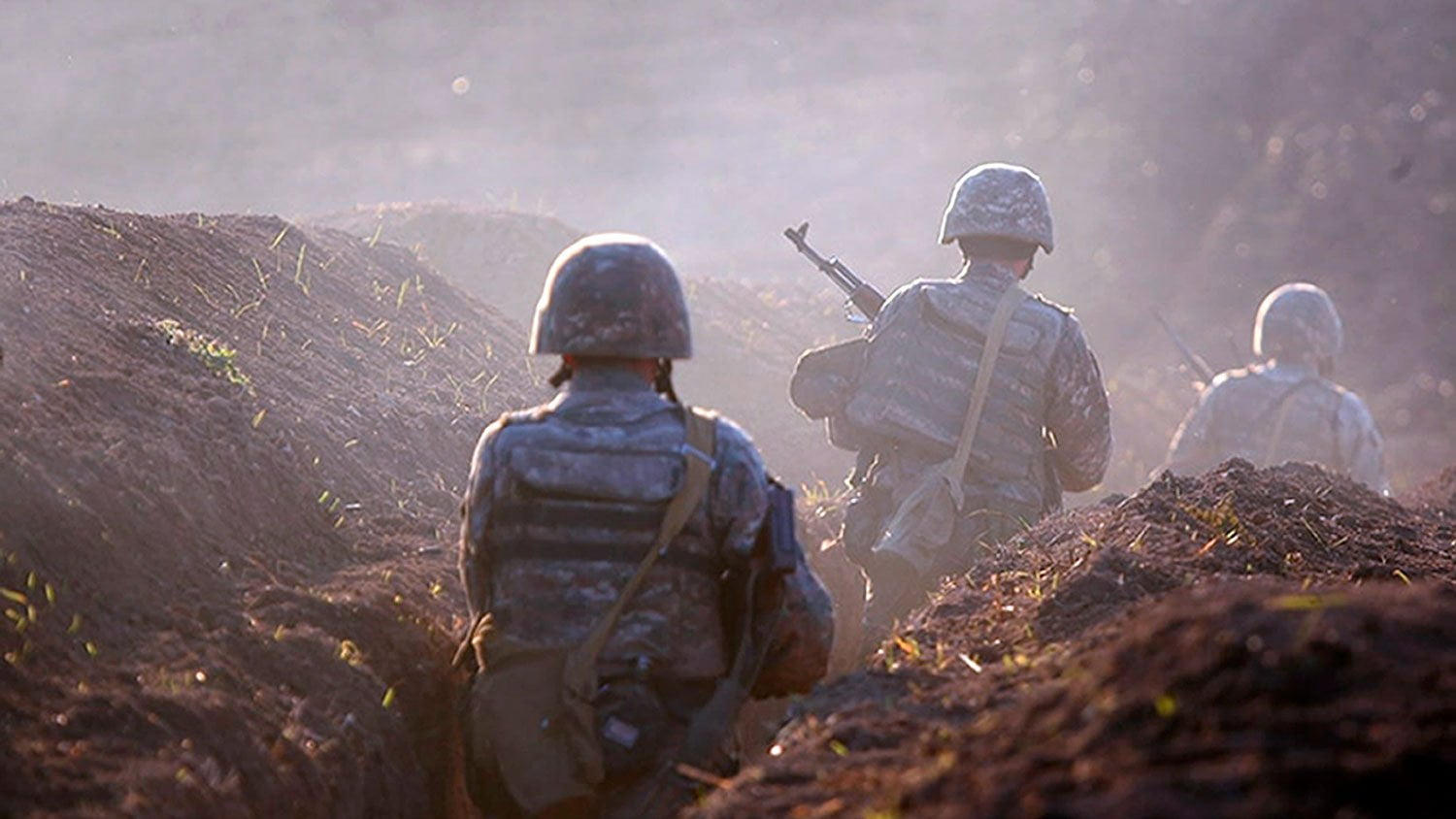Opinion | Nagorno-Karabakh: could there be a silver lining?
Yesterday’s agreement on the secession of hostilities in Nagorno-Karabakh, signed by Russia, Azerbaijan, and Armenia is a victory for Azerbaijan as well as for its ally in this conflict, Turkey. And while Armenia is on the losing side, if its elite proves its mettle, the situation may yet be transformed into the opening of a new strategic perspective for Armenia, allowing for the strengthening of its internal sovereignty and its democracy. Moreover, the agreement also allows Armenia to retain its influence on Stepanakert/Khankendi.
With Russia’s mediation, Armenia and Azerbaijan have made a statement that stopped six weeks of fighting. Seven districts previously heard by Armenia will return to Azerbaijan. The line of contact as well as the Lachin corridor, linking Nagorno-Karabakh with Armenia, will come under the protection of the Russian peacemaking forces. The sides have agreed to deploy 1960 Russian soldiers in the region.
Yet, the deal gives the chance for tempering the chilling influence of the Russian revisionist/imperial policies not only over Armenia but also in Azerbaijan and the South Caucasus in general. The manner in which this conflict ended gives moral satisfaction to Azerbaijan, yet, it does not cross the crucial red line for Armenia – control over Stepanakert. Russia’s already existing levers of influence did not change qualitatively: Azerbaijan feels more self-confident vis-a-vis the Kremlin, while Armenia has experienced the perils of too close an alliance with Russia. If the peace is now sustainably established, the whole region may benefit from an economic rebound.
Moral satisfaction and face-saving
Achieving a perception victory, a sense of moral satisfaction is often as important in a conflict as material gains. Azerbaijan has reestablished control over four districts and took Shusha/Shushi, a crucial point both strategically and in terms of its perceived, symbolic importance. The deal mediated by President Putin puts all three remaining districts under Azerbaijani control, including Lachin and Agdam. The popular mood in Baku suggests that this is indeed perceived as a victory.
At the same time, Armenia is holding on to Stepanakert and is – at least it seems at this stage – keeping most of Nagorno-Karabakh under local control, even though militarily Baku had a decisive tactical advantage for advancing on Nagorno-Karabakh after having captured Shusha/Shushi.
Not surprisingly, the debacle was perceived as a defeat in Yerevan. The scenes of the Parliament Speaker being beaten up by the mob testify to the public anger and the precariousness of the political situation. Still, Prime Minister Nicol Pashinian and the Armenian elite that has rallied around him still could convince their people that they managed to hold on to the most important asset despite in an unequal battle. If the government manages to let the initial anger subside without major destabilization, the latest battle may yet be portrayed as a story of heroic resistance.
Both sides could claim some moral satisfaction.
Material grounds
If all the arrangements foreseen by the agreement are made, the semi-blockade of Armenia will be lifted. One can foresee the opening of the roads and communications with and through Azerbaijan and Turkey. This would allow Armenia to partake in East-West bridge it was so far isolated from and to get some economic benefit .
Creation of additional communications – as foreseen, for example by opening road links between western districts of Azerbaijan and Nakhichevan autonomy, and onward to Turkey, will not be damaging for Georgia either. Even though the Georgian route will no longer be the only one, it would retain its importance, while the overall volume of trade will grow. Better interconnectedness of the region will also allow the money from the US and European donors to flow into infrastructural projects that were so far hamstrung by the conflict between Armenia and Azerbaijan, to the economic benefit of all three states.
Military-political factors
The agreement puts Russian peacemakers at the contact line and in the Lachin corridor. But even before that, Russia already had its military base in Armenia, as well as FSB border guards on its border with Iran, close official and clandestine connections with security services, not to forget about Gazprom’s gas yoke.
The way this war unfolded and ended liberates both liberal and nationalist elements of the Armenian society from the burden of accepting the Russian domination out of fear of Azerbaijan and Turkey. Peaceful Armenia – even if (and perhaps, because) that peace came at a great cost – would be more mindful of asserting its sovereignty also vis-a-vis Russia. The talks of closing the Russian military bases, getting rid of the Russian border guards, seeking closer ties with the EU would inevitably surface and will be discussed more freely than before.
Azerbaijan could also act more confidently in seeking contacts in Europe and the US. Courting Russia’s favors has delivered already, most of what Azerbaijan called “occupied territories” is back under its control. Stepanakert carries less weight while open road communications with Armenia creates a much better atmosphere for negotiating the deal on further matters.
In brief, Russia loses some of the levers that it had on the two countries and gains a peacekeeping operation, that is costly and – importantly – will take place under the watchful eye of the Turkish military.
In the coming days, Yerevan will be in crisis. Much rides on whether the Armenian government manages and survives that crisis. In the mid-term perspective, the elements of Russo-Turkish deal must become clear both on paper and on the ground.
But overall, Russia lost much through this conflict and recuperated little by the final arrangement. Perhaps, dividing and ruling is becoming too risky and too costly?
This post is also available in: ქართული
